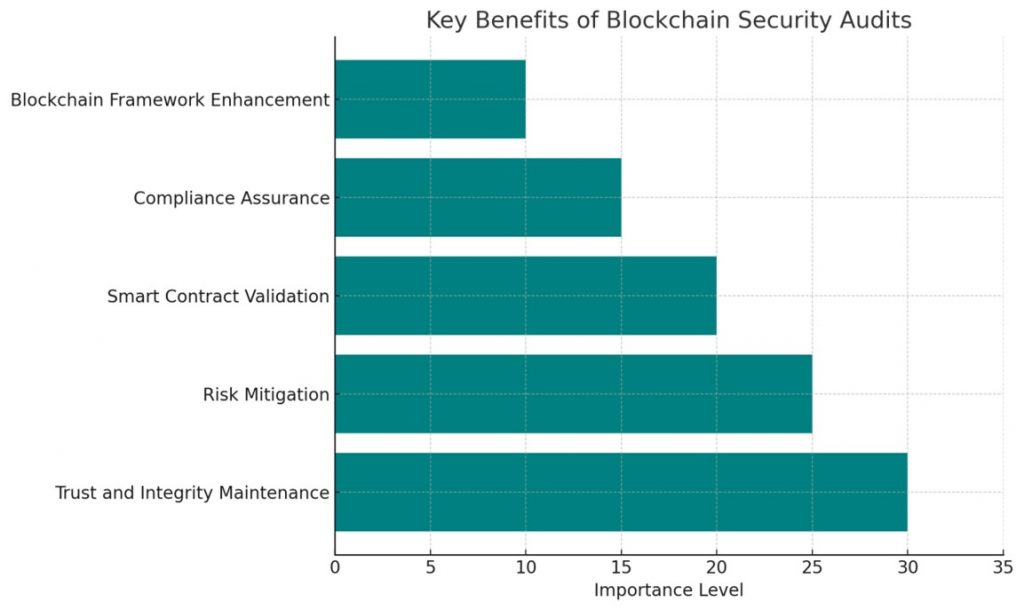BD Help Zone
Your go-to source for insightful news and information.
Behind the Curtain: How Fair Play Blockchain Audits Keep Crypto Honest
Discover how Fair Play blockchain audits ensure transparency and trust in crypto. Uncover the secrets that keep the digital currency honest!
Understanding Fair Play: The Importance of Blockchain Audits in the Crypto Space
Understanding Fair Play in the crypto space is essential for fostering trust and stability among investors and users. One of the fundamental aspects that contribute to this fair play is the implementation of blockchain audits. These audits serve as a comprehensive evaluation of the security protocols and code integrity within a blockchain project. Regular audits help identify vulnerabilities, ensuring that users' investments are safeguarded against potential hacks and scams. This proactive approach not only enhances the credibility of a project but also promotes a level playing field in an otherwise volatile market.
Moreover, blockchain audits play a vital role in regulatory compliance, which is becoming increasingly important in the cryptocurrency industry. With the growing scrutiny from authorities worldwide, projects that undergo thorough audits are better positioned to meet legal requirements and gain the confidence of institutional investors. By prioritizing fair play through transparent audit processes, projects can enhance their reputation and attract a broader audience. Ultimately, the commitment to rigorous auditing practices ensures that stakeholders can engage in the crypto ecosystem with trust, reflecting a collective effort toward a safer and more reliable marketplace.

Counter-Strike is a highly popular multiplayer first-person shooter game that pits terrorists against counter-terrorists in various game modes. Players can choose to play in casual or competitive settings, honing their skills and strategies to secure victory. If you're looking to enhance your gaming experience, consider exploring a stake promo code for exciting offers.
Behind the Scenes: How Fair Play Ensures Transparency in Cryptocurrency Transactions
In the ever-evolving world of cryptocurrency, the concept of fair play plays a critical role in ensuring transparency within financial transactions. Unlike traditional banking systems that often lack visibility, blockchain technology enables users to trace transactions in a secure and verifiable manner. Each transaction is recorded in a public ledger, allowing anyone to audit the system and ensure that all parties are adhering to the same rules. This level of transparency not only fosters trust between users but also reduces the risk of fraud and manipulation, a concern that has plagued many sectors of finance. By championing fair play, the cryptocurrency community is actively working to create a more equitable financial ecosystem.
Moreover, platforms that prioritize fair play often implement various measures to enhance transaction transparency further. These can include advanced encryption techniques, real-time transaction tracking, and comprehensive reporting mechanisms. For instance, users can typically access detailed records of their transactions, including timestamps and associated cryptographic signatures. This way, anyone can investigate the legitimacy of a transaction without needing to rely on third-party verifications. In this context, fair play not only safeguards user interests but also promotes accountability among cryptocurrency exchanges and platforms, ensuring a healthier market environment for all participants.
What to Look for in a Blockchain Audit: Staying Safe in the Crypto Market
As the popularity of cryptocurrencies continues to rise, the need for robust blockchain audits has never been more crucial. When evaluating a blockchain audit, it's essential to look for several key factors that ensure the safety and reliability of the project. Firstly, consider the audit team's experience and reputation. A well-established firm with a history of successful audits can provide greater assurance. Look for their certifications and any notable clients they have worked with in the past. Additionally, the audit methodology should be transparent and comprehensive; ensure that the firm employs rigorous testing techniques to identify vulnerabilities and potential exploits.
Another critical aspect to assess is the scope of the audit. A thorough audit should include not only a review of smart contracts but also an analysis of the underlying infrastructure, network security, and compliance with relevant regulations. Ask for a detailed report that outlines the findings and recommendations, as it reflects the diligence of the auditing process. Lastly, keep an eye on the post-audit support provided by the audit firm. Effective communication and assistance in addressing any discovered issues are vital to maintaining the security and integrity of your blockchain project in the ever-evolving crypto market.